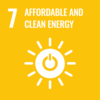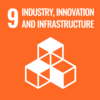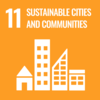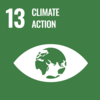The Keele University Smart Energy Network Demonstrator (SEND) (developed with Siemens) is a European first, and its integration with the Low Carbon Energy Generation Park (developed with Equans) makes the Keele campus unique and significant in the field of smart energy.
The campus is effectively a small town, with a range of mixed-use buildings, including educational facilities, residential housing, and businesses, each presenting different energy challenges. This ‘at scale’ environment allows energy generation, distribution, storage, forecasting and balancing to be intelligently carried out across different energy sources using the Keele University campus as a genuine ‘living laboratory’. The SEND delivers better energy management, reduces reliance on fossil-fuel derived energy, significantly reduces energy waste and provides the opportunity to trial innovative ways of energy use and management.
This project is helping to accelerate the energy transition through demonstration and support to diverse public and private sector organisations and universities, and through research and education.
Annual carbon savings achieved with the initiative:
A very significant project. A strong application with significant impacts already and more to come. This project also had an innovative and thoughtful aspect by using excess energy produced to generate "green" hydrogen for transport, energy storage and management of peak energy load.
A real-life example of a smart micro-grid, demonstrating the integration of renewable generation & smart energy management, the SEND at Keele acts as a beacon for other large organisations, including other universities, to implement similar technologies/systems at their own sites - helping to accelerate the UK’s energy transition.
"We are absolutely delighted to win this prestigious award. Sustainability is at the heart of everything we do at Keele, and this is a great result for our University and a testament to our sector-leading whole-institution approach to finding solutions to the biggest environmental challenges."
Professor Trevor McMillan, Vice-Chancellor



